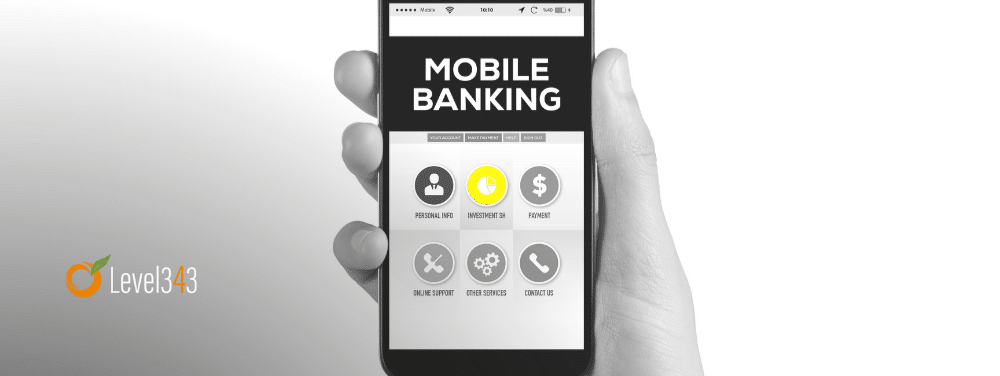Why are we, Level343, sharing information about mobile payments and your business? Buried in analytics, trends and so on as we are, we’ve seen a definite trend of visitors using mobile phones on our clients’ sites.
The plain and simple truth is that mobile usage – in all forms – is growing; that growth includes the expectation of being able to make mobile payments. Take, for example, Google Wallet, which will use Citi® PayPass™ MasterCards and Google’s Prepaid Card at launch, but is planned to have more partners.
For many online business owners, the site is simply a virtual extension of the physical store. Making it more convenient for customers – and doing so before the competition – can be extremely advantageous. Having said all that, read on, as our guest poster, Dave Thomas, goes more in depth about mobile payments.
From all indications, the mobile world we live in is only going to get more advanced, becoming a bigger part of our everyday lives.
As a small business, are you prepared to handle the demands of your customers or let them drift away to a competitor?
According to a recent report from KPMG International, 83 percent of some 1,000 executives in a variety of fields (tech to retail) believe mobile payments will be the mainstream prior the end of 2014. According to those surveyed, 46 percent believe paying via phone will be the norm by 2013.
As KPMG International sees it, ever-increasing smartphone growth and a number of opportunities will increase mobile payments at a much faster rate than respondents initially thought, especially given the competition. Companies like Isus, Google, Pay Pal and Square are among those looking to take their piece of the mobile payment pie, a sign of just how important this market is.
For small businesses, mobile payments can, not only offer the consumer an easier ability to pay, but can open up the doors for you, the business owner. They also provide a faster and more stream lined payment process. The day may not be as far away as some may have thought where credit cards and wallets take a back seat to one’s phone in order to pay for a purchase.
As a small business owner, are you prepared for when this day comes?
According to many experts who follow the world of mobile payment technology, it would behoove small business owners to be in the forefront and not at the back of the line in accepting this technology.
In the event your company is not up to speed on the mobile payment world, now would certainly be the time to jump in and get your feet wet.
Among the advantages to having mobile payments in place are:
- Payment processing is quicker – Given that you’re no longer required to stand idly by waiting for a receipt, you can move your customers in and out more quickly;
- You snooze you lose – For those small businesses not offering mobile payments, there is a greater chance of losing customers to those businesses that do. Remember how things were before your business was able to accept credit cards? There is a good chance you lost customers who wanted to pay with plastic instead of cash. The same will hold true with those wanting to use their phone instead of plastic;
- Fraud is less likely – Although nothing is 100 percent foolproof, not having customers use credit cards as much lessens the chances of fraud. We all know that credit cards can be lost or stolen, while the chance of someone having their phone stolen is smaller.
If you’re not dialed in to mobile payments just yet, here are several means to go about it:
First, determine what type of implementation you want – among the choices would be a smartphone app, using the smartphone to read credit cards or letting customers use smartphones via near field communication (NFC).
The next step involves selecting a vendor, but be sure to research each and every one of them to look how the contracts are worded regarding fees etc.
Lastly, make sure security for both you and the customer is a high priority. You will want a secured wireless network with a card swiper that is encrypted.
While not everyone will immediately catch on to the world of mobile payments, your business can leave its footprint in the mobile world and reap the benefits of more customers in the process.



































4 Responses
I do not enough knowledge about this topic. Well job. Thanks
David,
Thanks for the feedback. If I were a business, I think my greatest concern would be the security issue. The last thing I’d want is my customers worrying about sensitive information being hacked. As the technology continues to increase, I think businesses will have to stay on top of or ahead of the curve or risk losing current and potential customers.
To be honest, I’d completely forgotten about this aspect of the potential upgrade. Security has to be a priority and is for many people. Here in the UK, there have been many situations in the past few years where even the government has mislaid millions of peoples private and personal data. As such, to then rely on phones, so easily hacked I’m sure, is a risky business that will need to be addressed before any migration over to this form of payment is likely. It will be interesting to see what happens with regards to this though as it certainly would make payments easier.
An interesting topic. I had heard talk of mobile payments before, but never took much note of it as I thought it would be a passing phase or some new and crazy idea trying to advance technology before eventually dying off. From having read this though, I can certainly see the benefits that this could offer.
My main concern though, is be the accessibility of this technology to everyone. Personally speaking, my phone is just that… a phone. I never use the internet or other services on it as I prefer a larger screen to browse more easily and as such, I avoid the monthly payments being online on my phone incurs. More will have to be explained about the NFC before there will be any mass migration over to this new form of payment, but I would imagine this is why full integration is expected later in 2014 rather than now.
Clearly the benefits are there for all to see. It will save time, effort, paper… but as with all new technologies, there will be certain aspects that will need to be clarified before it rolls out for all to use.